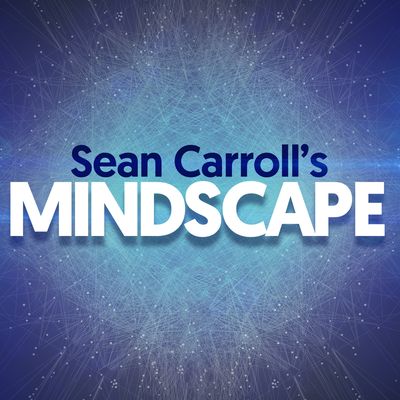Ever wanted to know how music affects your brain, what quantum mechanics really is, or how black holes work? Do you wonder why you get emotional each time you see a certain movie, or how on earth video games are designed? Then you’ve come to the right place. Each week, Sean Carroll will host conversations with some of the most interesting thinkers in the world. From neuroscientists and engineers to authors and television producers, Sean and his guests talk about the biggest ideas in science, philosophy, culture and much more.
https://www.preposterousuniverse.com/podcast/
Gesamtlänge aller Episoden: 21 days 15 hours 31 minutes
episode 13: Neha Narula on Blockchain, Cryptocurrency, and the Future of the Internet
For something of such obvious importance, money is kind of mysterious. It can, as Homer Simpson once memorably noted, be exchanged for goods and services. But who decides exactly how many goods/services a given unit of money can buy? And what maintains the social contract that we all agree to go along with it? Technology is changing what money is and how we use it, and Neha Narula is a leader in thinking about where money is going...
episode 12: Wynton Marsalis on Jazz, Time, and America
Jazz occupies a special place in the American cultural landscape. It's played in elegant concert halls and run-down bars, and can feature esoteric harmonic experimentation or good old-fashioned foot-stomping swing. Nobody embodies the scope of modern jazz better than Wynton Marsalis. As a trumpet player, bandleader, composer, educator, and ambassador for the music, he has worked tirelessly to keep jazz vibrant and alive...
episode 11: Mike Brown on Killing Pluto and Replacing It with Planet 9
Few events in recent astronomical history have had the worldwide emotional resonance as the 2006 announcement that Pluto was no longer considered a planet, at least as far as the International Astronomical Union was concerned. The decision was a long time coming, but no person deserves more credit/blame for forcing the astronomical community's hand than Caltech astronomer Michael Brown...
episode 10: Megan Rosenbloom on the Death Positive Movement
We're all going to die. But while we are alive, it's up to us how we understand and deal with that fact. In the United States especially, there is a tendency to not face up to the reality of death, and to assume that our goal should be to struggle at all costs to squeeze every last minute out of life. The Death Positive movement aims to change that, helping people to both face up to death on a personal and cultural level, and to give themselves more control over the manner of their own deaths...
episode 9: Solo -- Why Is There Something Rather than Nothing?
It's fun to be in the exciting, chaotic, youthful days of the podcast, when anything goes and experimentation is the order of the day. So today's show is something different: a solo effort, featuring just me talking without any guests to cramp my style. This won't be the usual format, but I suspect it will happen from time to time. Feel free to chime in below on how often you think alternative formats should be part of the mix...
episode 8: Carl Zimmer on Heredity, DNA, and Editing Genes
Our understanding of heredity and genetics is improving at blinding speed. It was only in the year 2000 that scientists obtained the first rough map of the human genome: 3 billion base pairs of DNA with about 20,000 functional genes. Today, you can send a bit of your DNA to companies such as 23andMe and get a report on your personal genome (ancestry, health risks) for about $200. Technologies like CRISPR are allowing scientists to edit genes, not just map them...
episode 7: Yascha Mounk on Threats to Liberal Democracy
Both words in the phrase "liberal democracy" carry meaning, and both concepts are under attack around the world. "Democracy" means that they people rule, while "liberal" (in this sense) means that the rights of individuals are protected, even if they're not part of the majority. Recent years have seen the rise of an authoritarian/populist political movement in many Western democracies, one that scapegoats minorities in the name of the true "will of the people...
episode 6: Liv Boeree on Poker, Aliens, and Thinking in Probabilities
Poker, like life, is a game of incomplete information. To do well in such a game, we have to think in terms of probabilities, unpredictable strategies, and Bayesian inference. These are ideas that play a central role in physics and rationality as well as in poker, which makes Liv Boeree such a great person to talk about them. Liv is a professional poker player who studied physics as a university student, and maintains an active interest in science generally and astrophysics in particular...
episode 5: Geoffrey West on Networks, Scaling, and the Pace of Life
If you scale up an animal to twice its height, keeping everything else proportionate, its volume and weight become eight times as much. Such a scaling relation was used by J.B.S. Haldane in his famous essay, "On Being the Right Size," to help explain certain features of living organisms. But scaling relations go much deeper than that, and they are often much more subtle than the volume going as the cube of the length...
episode 4: Anthony Pinn on Humanism, Theology, and the Black Community
According to atheism, God does not exist. But religions have traditionally done much more than simply proclaim God's existence: they have provided communities, promoted the arts, handed down moral guidance, and so on. Can atheism, or perhaps humanism, replicate these roles? Anthony Pinn grew up as a devout Methodist, but became a humanist when he felt that religion wasn't really helping the communities that he cared about...
